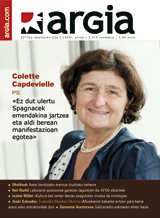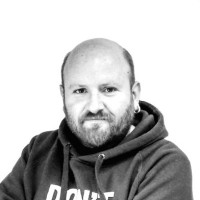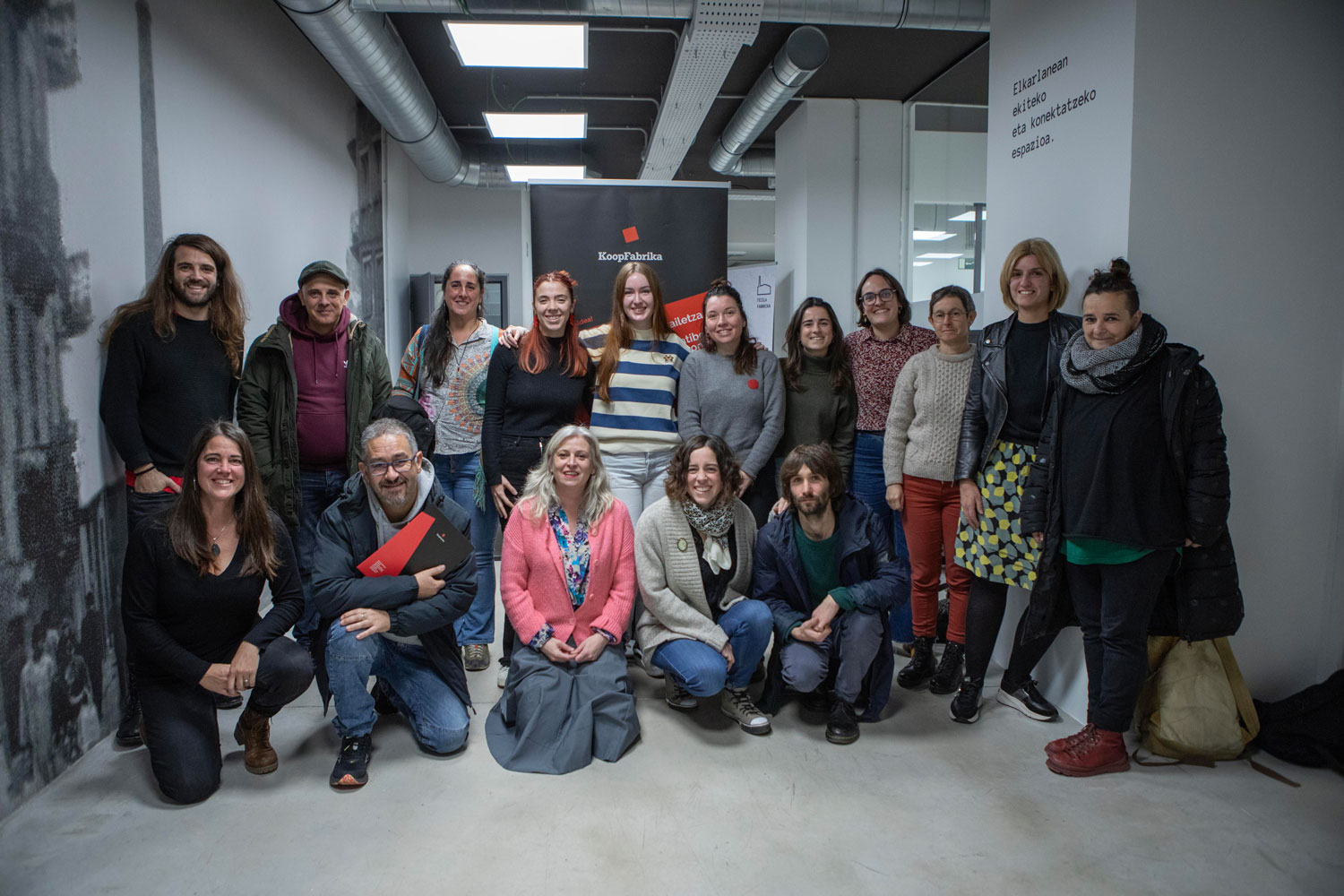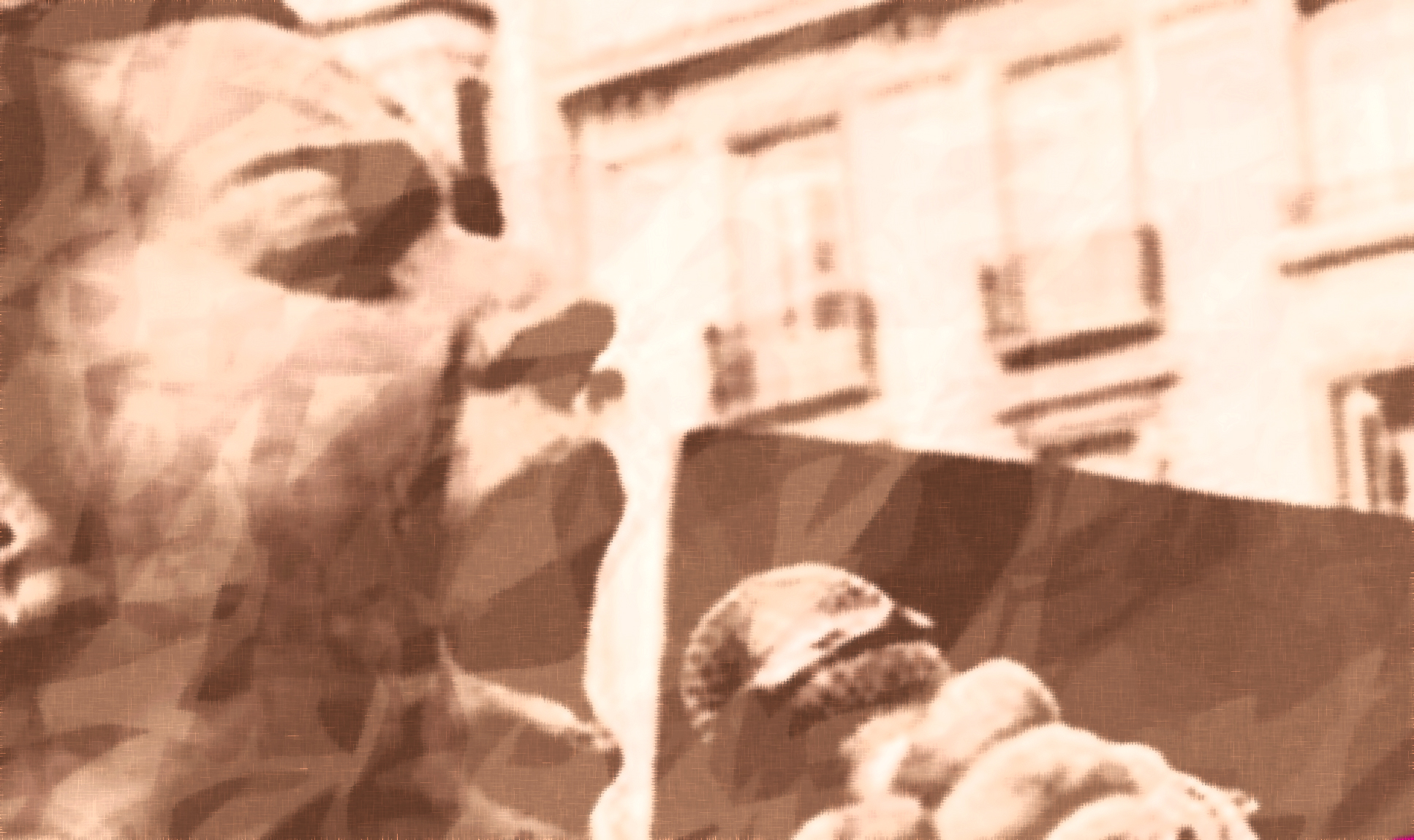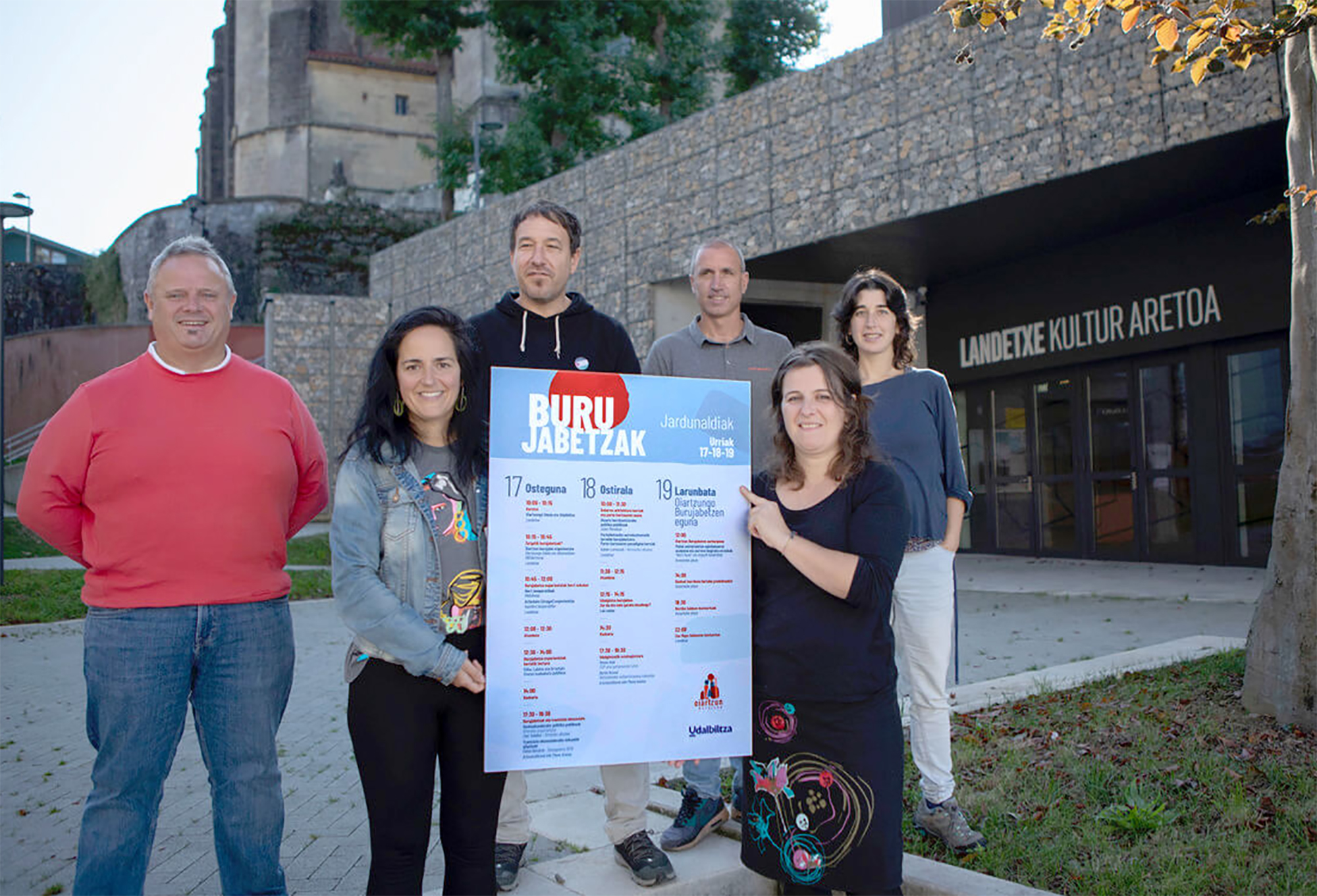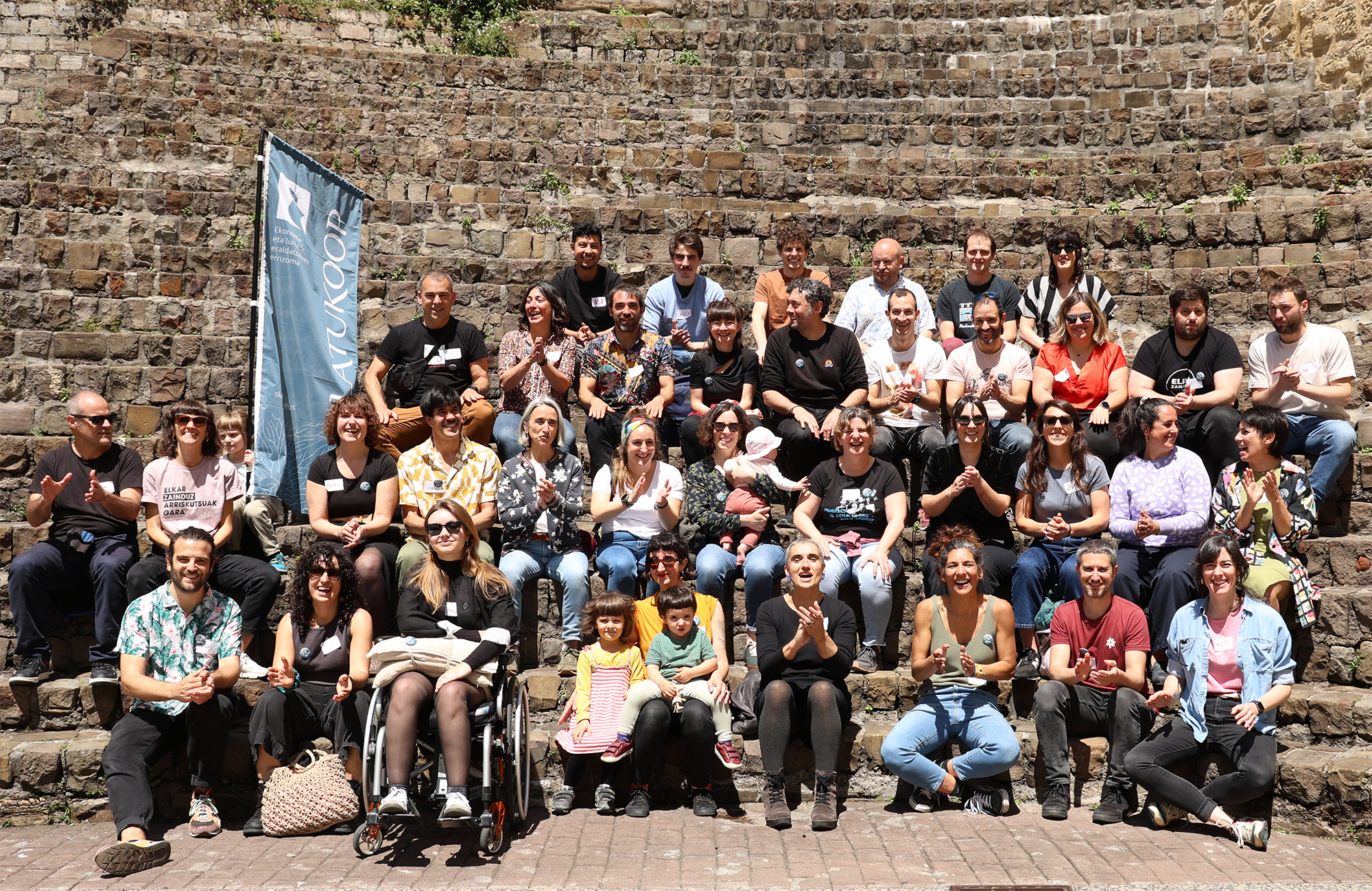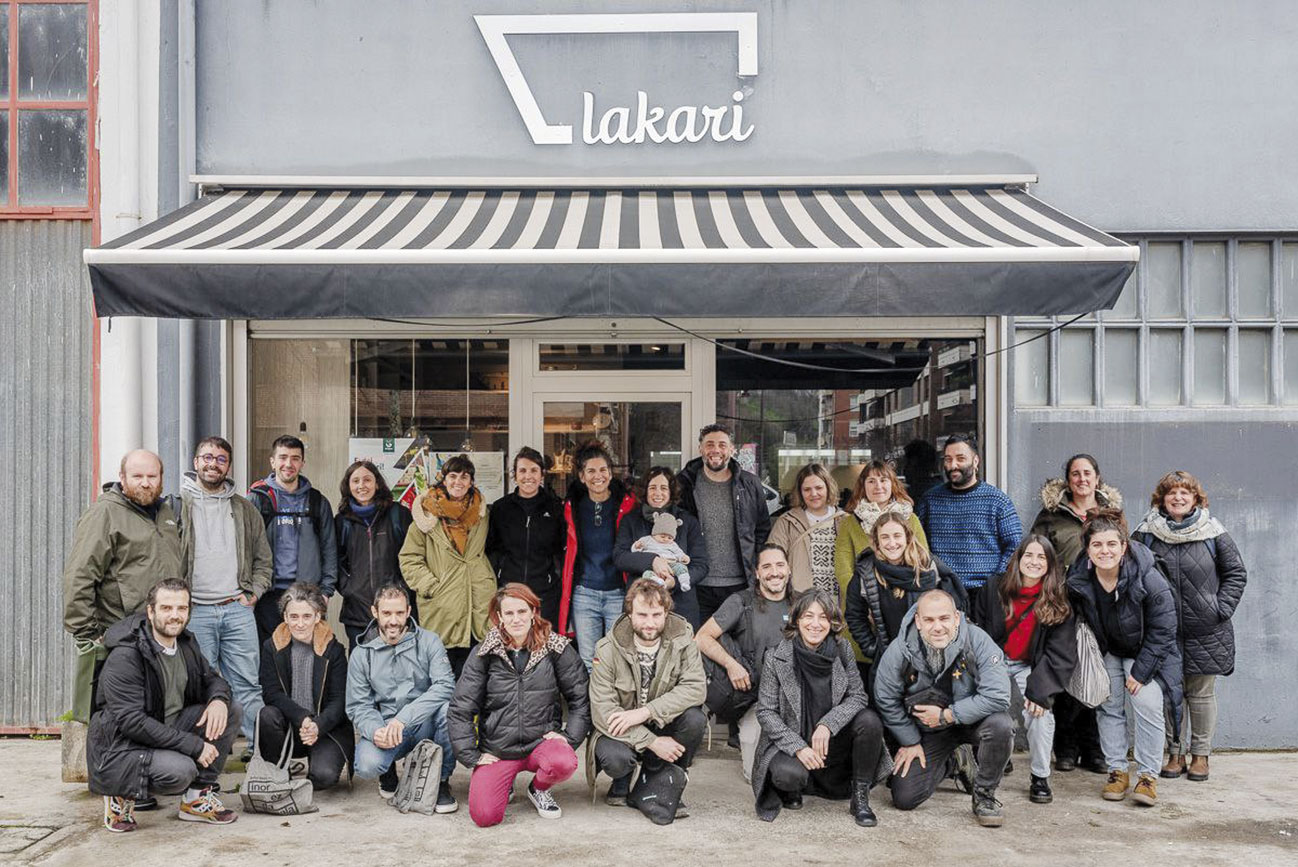AFOG, a model to promote self-management of small farms
- The weekly Laborari of the ELB trade union has given us the opportunity to learn about the AFOG association, which has organised a small party to celebrate its 30th anniversary. He has explained to us a small but effective organisation, which also offers interesting lessons to respond to the self-management needs of other very small companies and groups.
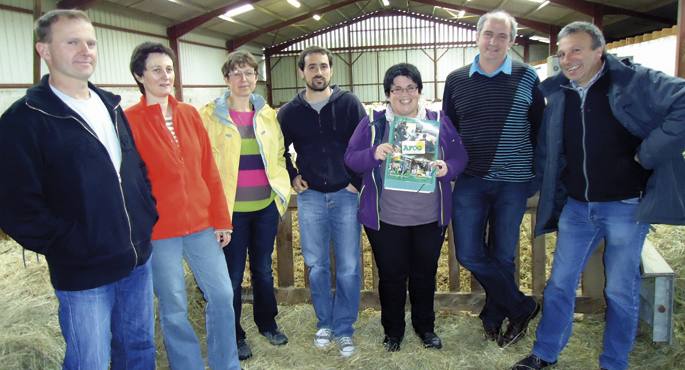
In the 1980s, many things happened in the cultivation of the North, such as language, culture, politics, the economy and in general all those activities that required militant commitment. Laborari’s issue 1.026 dedicates its main pages to a small entity that has lived in the shadow among them. “AFOG: 30 ans à former des paysans autonomes”, with introductory wording: “The AFOG partnership is celebrating 30 years this year and plans to hold its general assembly on 8 June in Lekorne. The association was born in 1983 to help farmers in accounting and farm management. Today, the self-employed are still trained in the ways of choice and work.”
Little odor to revolution has the accounting of a small company. However, this and generally good management have been fundamental to the baserritars of small farms that have survived over these years. Exhausted by the death of the former agricultural settlements, since the 1970s the dwellings have been considered small companies by the administrations. Micro-enterprises condemned to compete with companies, lobbys, laws and markets that control industrial agriculture.
The Association for the Formation of Management (AFOG), a small service company which is now part of the coordination of Inter-AFOCG (including the letter “c”) at French level, was jointly organised with the creation of the Union of Farmers of the Basque Country (ELB).
Their working method will be interesting for many who are not engaged in agriculture, as it makes it easier for professionals to exercise self-management. The independence of people preached by historical leaders like Jean Pitrau and repeated today. AFOG’s 630 partner farmers – it is estimated that they were 80 at first – work in small groups of 5-6, supported by one of the eight workers in the structure.
“The objective of AFOG is to develop the autonomy of its members,” explains Weekly Frantxua Etxebeste, president of the association, being a farmer in Gotaine-Hirabarne (Zuberoa). In the first part-sessions, the farmer is helped to take charge of the accounts (taxes, banks, aids, VAT...) and then go further, until he makes and takes his own decisions.
One of the keys is teamwork. As permanent groups, each farmer has the easiest to realize that he cannot see them in the small world of his day to day. AFOG, for its part, offers the service of an economic observatory with the information collected over the 30 years and that obtained from outside.
Teamwork makes it possible to see more clearly where each member has opportunities for improvement or change in the future. In this respect, rather than AFOG’s strategic plans, there is talk of strategic management.
Also baserritarra Mailux Petrisans, of donoztarra origin, in the direction of the Inter-AFOCG at the level of France, said: “The AFOG is not to show a model, an entirely traveled path, but to give a perspective. It must allow the person to assume the trade that is agriculture.”
The brain in auzolan
In the words of Etxebide, it is the farmers themselves who jointly make the accounting and management of their farms. From there, the reflection extends to more themes, whether to improve living conditions or benefits.
Etxebeste says: “We don’t have partners that are not farmers, and what interests us is the same person, who feels good in their trade. When you are well in the trade, you can cope with everything.” Sometimes also to improve profits or, in some cases, to abandon agriculture, because it is too hard.
In French agriculture, CUMA is referred to as the legal form of an auzolan created to share tractors or other instruments. Etxebeste uses a word game for AFOG: “We see ourselves as a CUMAG, ‘a cooperative de matière grise’, made as a team. The idea is to share, the animator is there to put the methodology, to collect the summaries of what's spoken, because what's written is what we bring home. But it’s the group that drives us.”
The well-known writer and playwright Mattin Irigoien, one of the eight workers of the Laborari association in the Basque Country, gives an example of the information generated in AFOG. The association itself, the great agricultural observatory in Iparralde, has asked Irigoien how he sees the situation since the outbreak of the last crisis. Irigoien believes that a very large and fite change is taking place, stronger than that triggered by the famous agricultural PACs decided at European level in 1993.
The margin for manoeuvre has been squeezed at the baserritarra, says Irigoien. “If the farm had a balance with the working molds before 2008, from 2008 this balance breaks in many farms. What is at stake? In no case is it written what needs to be done. It used to be said: ‘Make a pig’ or ‘do with me’ [cucumber]! Now his road is male-you have to think, also the ways of working. You have to get the benefit out with less money.”
The raw situations experienced by farmers are discussed and discussed at the meetings of the AFOG groups. Irigoien has offered several figures: if the average profit of a farm is 10,000-13,000 euros, half of the cottages are below that amount, and within them half close to zero, some even below zero.
Although government premiums have increased in recent years, average farm incomes barely reach pre-crisis figures. To what extent the 2008 crisis has affected the villages of Iparralde, despite the fact that the current situation does not echo the unemployment rate in the cities of the South.
In the words of Mattin Irigoien, in AFOG, how they experienced the beginning of the crisis: “When we do our observatory, we bring out the worms of the previous year in autumn and present them in groups. In 2008, with all the rising expenses, we immediately carried out a drill, telling the farmers to what extent they would gain the same things from the previous year. The electric is immediately generated as a charge. While working, he doesn’t immediately realize what he’s talking about, just in 2-3 years, and when he reaches the wall, he realizes that the shadow has increased...”
Gasteizko Eraman kooperatibak banaketa “era jasangarri eta etikoan” eginez bertako komertzioa bultzatzeko helburua du bere sorreratik, Arabako hiriburuan eta hango bizilagunengan pentsatuta. Hainbat ekimenetan parte hartzen du, horien artean ikasturte honetan egiten... [+]
Gure lurraldeetan eta bizitzetan sortzen diren behar, desio eta ekimenen inguruan gero eta gehiago entzuten dugu harreman eta proiektu publiko-komunitarioak landu beharraz, eta pozgarria da benetan, merkaturik gabeko gizarte antolaketarako ezinbesteko eredua baita. Baina... [+]
Budgets and the closure of annual accounts are nothing more at this time, from the domestic economy to most of the socio-economic spaces that we share. Large companies have begun to extract calculators and implement major plans for 2025. Small and medium-sized institutions and... [+]
I write these lines the day after the elections to the European Parliament, the dark times, the triumph of the Reactionary International in the elections to the European Parliament. It was already in advance and it is the confirmation of the conservative phase we live in, but it... [+]









